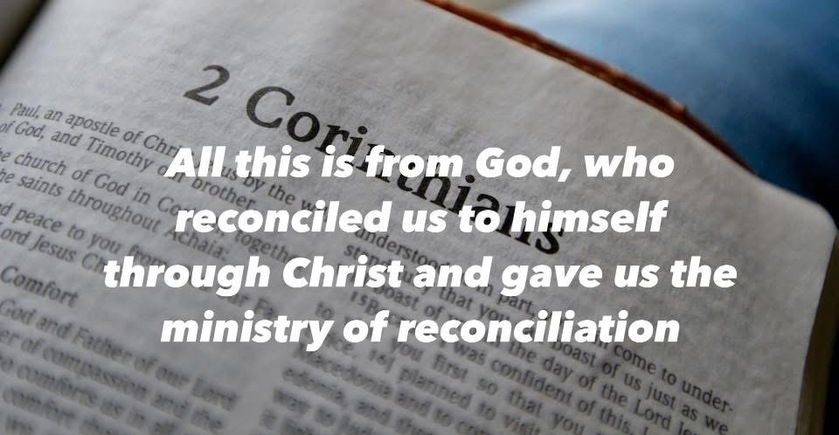From Cave of Despair to Pearl of Purpose: God’s Redemptive Whisper in Trials
1 Kings 19:9
There he [Elijah] came to a cave and lodged in it. And behold, the word of the Lord came to him, and he said to him, "What are you doing here, Elijah?"
Imagine you don't have any friends, you don't have a soulmate, you don't have a job and you're not involved in anything really productive according to all the cultural norms. By our cultural standards you're kind of a loser. In the case of Elijah, it's even worse than that, he's being hunted by the wicked queen. And he's questioning his self-worth.
So what does this all mean?
It's a conversation about depression and how it's really a comparison thing. Compared to others you're not really doing very well. Others are thriving and confident and you are at the bottom of these dynamics, at the bottom where everything is falling apart and you're barely hanging on to anything of any earthly significance. This triggers in your mind a physical mechanism that begins to set your perceptions physiologically. The lower you are in this perceived hierarchy, the more your life is unstable. And so, this mechanism sets your perceptions about your security, your human value in terms of society, and your self-worth. And this impacts your brain production of serotonin. And that makes you hypersensitive to more negative emotions and worse than that it suppresses positive emotions. So, true depression is a mismatch between your actual competence and self-worth, and your perception of confidence as is granted to you by your surrounding cultural environment. It's all out of whack thinking about yourself.
Look at this passage in 1 Kings chapter 19. In fact, read the entire chapter to truly see how Elijah found himself where he was. This story illustrates Elijah at a very low point: after a great victory, he faces threats, feels utterly alone and like a failure compared to others (or his ancestors), and even prays for death.
Quick Side Reflection:
Do you think there's a holy suicide?
Is it possible to say that suicide might fit God's plans and purpose?
Hold on to that question and let's see if we don't find our answer in what follows.
God intervenes gently with Elijah, providing sustenance, revealing purpose, and affirming that Elijah is not as isolated as he perceives (with 7,000 faithful others). You see, it's that power of perception. This story underscores that human value comes from divine authority, not societal hierarchies or self-perception, and that enduring trials aligns with God’s will rather than ending life prematurely.
There's a lot of reasons why suicide isn't a good idea, beyond the obvious life-ending implications. Our human life is a sacred gift from the divine, and ending it prematurely usurps His divine authority, equating to murder (self-murder). It disrupts spiritual principles like non-violence. Suicide is generally prohibited because it defies the value of life outlined by God in the Scriptures like Genesis, where humans are made by God in God’s image. It’s seen as a rejection of God’s will and his established sanctify of life.
Here’s the key excerpt from 1 Kings 19:3-18
This aligns with the emphasis on depression as a mismatch between perceived low status and true worth, showing how God restores perspective and serotonin-like "strength" through provision and Godly whispers, rather than letting despair win over the mind and body. It reinforces life’s sanctity, as Elijah’s plea for death is met not with judgment but with renewal and mission.
Let's try another scriptural perspective:
Psalm 42:11
Why are you cast down, O my soul, and why are you in turmoil within me?
Hope in God; for I shall again praise him, my salvation and my God.
The psalmist is confronting his own downcast soul, and he is hanging on just enough to redirect it towards his hope in God's will, emphasizing that true worth and restoration come from divine relationship rather than cultural comparisons or serotonin imbalances.
Okay, but what is God's will?
I'm mean, right now it probably feels like you're not really feeling God's will. It seems far off and unrealistic. It's something others have but far from your reach.
But what is God's will?
John 6:40
"For this is the will of my Father, that everyone who looks on the Son and believes in him should have eternal life, and I will raise him up on the last day."
Even when our divine purpose feels distant amid our isolation or despair. This faith reframes our self-worth not through cultural achievements or emotional stability but through God’s unchanging invitation to look to the Son, promising resurrection and restoration. You have an eternal value, an eternal purpose, an eternal stability, when you have Jesus Christ. This counters the "mismatch" of perceived low status by affirming that God’s will is for eternal hope, not contingent on current circumstances, and it echoes the psalmist’s self-redirection toward praise despite turmoil.
Jesus declared, "I am the bread of life. Whoever comes to me will never go hungry, and whoever believes in me will never be thirsty." He will give you the purpose and value you thought were unattainable. He already sees you as a precious pearl. Did you know that, that he sees you as a pearl?
To build on this, let’s take a close look at Parable of the Pearl of Great Price in Matthew 13:45-46, which vividly illustrates how God views us not as cultural "losers" amid isolation or instability, but as invaluable treasures worth His ultimate sacrifice.
Matthew 13:45-46
"Again, the kingdom of heaven is like a merchant in search of fine pearls, who, on finding one pearl of great value, went and sold all that he had and bought it."
You are that fine pearl.
He searched for you.
He purchased you with HIS life.
He sold EVERYTHING for you.
He redeemed you at infinite cost, shattering any of your notions of worthlessness derived from our cultural norms or your emotional lows.
And think about that pearl, formed out of irritation.
Did you know that?
Did you know an oyster forms a pearl due to irritation?
It's a natural defense mechanism in oysters when an irritant, such as a grain of sand, or a parasite, enters the shell and lodges between the oyster’s soft mantle and its shell, causing discomfort or irritation. To alleviate this, the oyster secretes layers of "nacre" (also called mother-of-pearl, a shimmering substance made of calcium carbonate and organic proteins) around the intruding irritant, gradually building up over time, sometimes years, to form a smooth, lustrous pearl. This process isn’t intentional "jewelry-making" but a way for the oyster to protect itself and ease the pain, turning something harmful into a thing of rare beauty.
Just as the pearl emerges from irritation and adversity, God often uses our trials; those feelings of isolation, worthlessness, or cultural "failure", to shape us into something precious and resilient.
Today, more than ever, people are just islands. Short on meaningful relationships. Our culture is eroding meaningful relationships. And if you don't have anybody to hold you, to need you, to trust you, to desire you, then what do you have to live for? And pride enters in and disastrously feeds this cycle of emptiness. We're a culture of one-off isolated people. People trying to escape the destruction of the families that we encouraged in the last few decades. Many have checked out of their relationships and focused inward. They've focused on feeding all their own inner desires and biases. They've decided that family isn't important. They've decided that society isn't important because society is just an extension of family. It's everywhere around us today, and some think about taking it to the ultimate extremes. Often trying to inflict pain because of the pain of their own dystopian despair.
So, what's the solution:
I don't want to suggest it's easy or works perfectly in a matter of minutes. Thin about that pearl, it takes years to develop. But I do know that what starts as pain can become a testament to God's redemptive work, coating our wounds with pearlescent grace to produce character, hope, and eternal value.
Scripture echoes this in Romans 5:3-5
"Not only so, but we also glory in our sufferings, because we know that suffering produces perseverance; perseverance, character; and character, hope. And hope does not put us to shame, because God’s love has been poured out into our hearts through the Holy Spirit, who has been given to us."
Your "irritations" aren’t signs of your defeat but opportunities for divine transformation, affirming you’re the pearl Christ sought and redeemed at infinite cost. Now you rise up into purpose like Elijah. Rise up and witness God passing. Look for him in the whispers. Your faith is shaped by these troubled times. It's cultivated and shaped by endurance. You can stand firm and finish this race because He gave you everything you need.
It’s not about snapping out of despair overnight; it’s a deliberate, Spirit-empowered shift from perceiving irritations as defeat to seeing them as the raw material for divine pearl-making.
This progression—suffering → perseverance → character → hope; is God’s blueprint for turning pain into purpose. It’s like the oyster’s nacre: Layer by layer, the Holy Spirit coats our wounds with love, producing resilience that counters the "mismatch" of our perceived low self-worth.
Your faith, shaped by these troubled times, becomes the endurance muscle.
James 1:2-4
"Consider it pure joy, my brothers and sisters, whenever you face trials of many kinds, because you know that the testing of your faith produces perseverance. Let perseverance finish its work so that you may be mature and complete, not lacking anything."
You rise up not by your own strength but by His provision, witnessing God in the whispers rather than demanding dramatic signs. Endurance grows by doing. Take micro-steps toward productivity: Volunteer, join a small group Bible study (even online), or pursue a hobby that aligns with your gifts. Remember, Elijah’s renewal led to anointing others; your purpose might involve helping those in similar pain. Isolation amplifies despair, so combat it biblically: "Carry each other’s burdens" (Galatians 6:2). Do whatever it takes to avoid being alone and letting others feel alone.
I know it doesn't seem like it, but you have everything you need because Christ equips you (2 Peter 1:3: "His divine power has given us everything we need for a godly life" ).
Rise up, pearl in formation.
Your story testifies to redemption, and the finish line holds unshakable hope.
If waves crash, remember: Deep calls to deep, and God’s love sustains through it all.
Psalm 42:7
"Deep calls to deep at the roar of your waterfalls; all your breakers and your waves have gone over me."
It's a reminder that in the midst of life’s storms, one trouble calling forth the next, creating a sense of being engulfed by endless despair. The trials even feel divinely permitted, sweeping over your soul like relentless waves, drowning out your peace and amplifying your isolation. The psalm writer is exiled from his worship, he's taunted by his enemies ("Where is your God?" in verse 3), and consumed by his fears, mirroring the "mismatch" of low self-worth and lack of cultural thriving.
But it’s a reminder that in the roar of all the chaos, God’s voice isn’t absent; it’s calling back from His own depths, transforming the flood into a pathway for renewal. From the very thing that's got your down, God is calling you back to Himself. From deep to deep. Just look at the next verse.
Psalm 42:8
By day the Lord directs his love, at night his song is with me, a prayer to the God of my life.
If the waves are crashing right now, lean into the call, pray the psalm, seek His whispers in scripture or a faith community, and trust that His love sustains, turning deep pain into even deeper faith.
Prayer:
Heavenly Father, in the depths of our isolation and turmoil, where waves crash and perceptions falter, remind us we are Your precious pearl, formed through irritation into beauty. Grant us endurance like Elijah, hope like the psalmist, and faith to look to Your Son for eternal value. Coat our wounds with Your grace, pour out Your love through the Holy Spirit, and sustain us in the whispers, turning pain into purpose.
In Jesus’ Holy name, Amen.




















